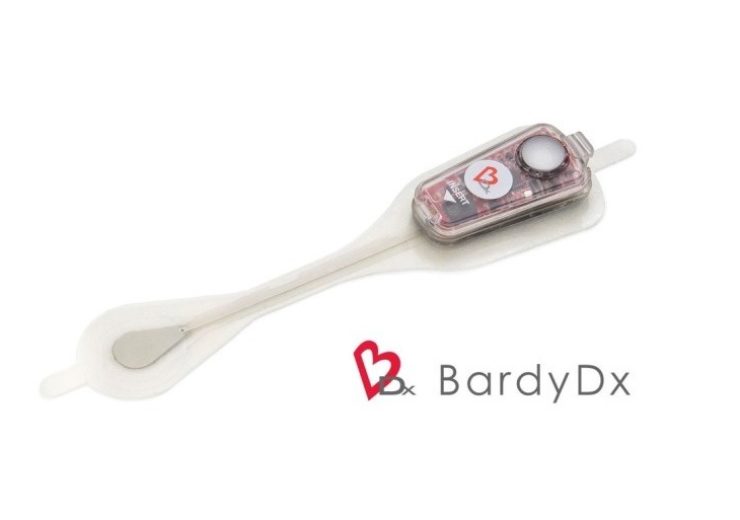The CAM Patch will be applied in newly established protocols to monitor cardiac rhythms for COVID-19 patients using Hydroxychloroquine after hospital discharge

Bardy’s CAM P-wave centric ambulatory cardiac patch. (Credit: PRNewsfoto/Bardy Diagnostics, Inc)
Bardy Diagnostics has announced the use of Carnation Ambulatory Monitor (CAM) Patch to measure QT segments in COVID-19 patients taking Hydroxychloroquine (HCQ).
The CAM patch will be applied in newly established protocols at hospitals across the Seattle of Washington area for the monitoring of cardiac rhythms for COVID-19 patients on HCQ after hospital discharge and outpatients.
The CAM patch will help better measure QT intervals and diagnose harmful arrhythmia called Torsades de Pointes
According to the company, the HCQ was showed to extend the QT interval in certain populations, enabling to cause harmful arrhythmia known as Torsades de Pointes.
The CAM P-wave patch holds the capacity to identify and record low frequency, as well as low amplitude cardiac rhythms, helping to better measure QT intervals and diagnose Torsades de Pointes.
According to the company, the clinical value of the CAM patch’s P-wave centric engineering was also showed in a head-to-head peer-reviewed clinical study comparing the CAM Patch to iRhythm’s Zio XT patch.
The study reported that the BardyDx CAM Patch detected 40% more arrhythmias and helped to make a more informed decision in 1% of patients compared to the iRhythm Zio XT patch.
Bardy Diagnostics founder, CEO and chief medical officer Dr Gust Bardy said: “The world is currently at war against the COVID-19 virus and we are proud that the CAM Patch is being used in that fight to help physicians better identify and understand any arrhythmias, or other cardiac irregularities, that may be related to use of HCQ in COVID-19 patients, as well as how any potential COVID-19 vaccines might impact cardiac function.”
In September 2019, Bardy Diagnostics secured 510(k) clearance from the US Food and Drug Administration (FDA) for the 14-day version of the Carnation Ambulatory Monitor (CAM), a P-wave centric ambulatory cardiac patch monitor and arrhythmia detection device.
The CAM patch has been developed to provide greater flexibility to clinicians in cardiac monitoring over a longer period.
